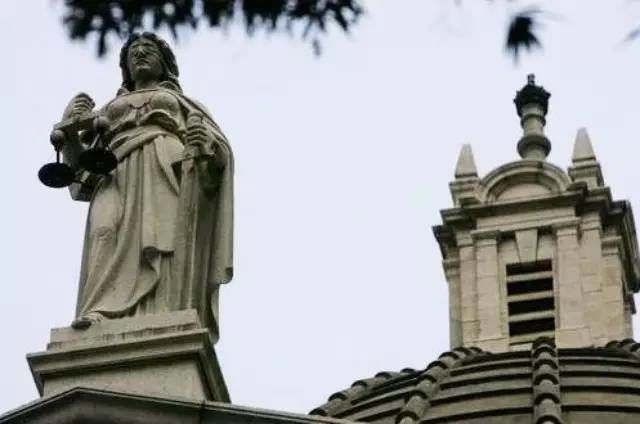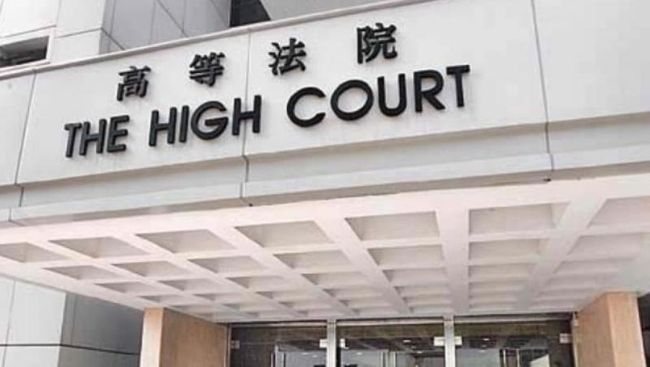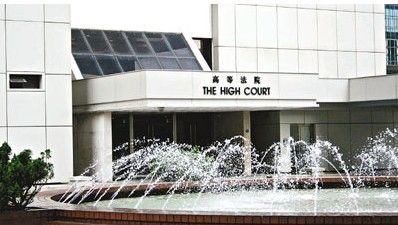CACV 224–227/2016
上訴法庭日期為2016年11月30日的判案書的
新聞摘要
(本摘要並非判案書的一部份)
__________________
上訴法庭基於下述理由駁回上訴:
1. 在香港,《基本法》而非立法會享有最高法律地位。《基本法》只授權法院獨立行使香港特別行政區的審判權。
2. 當爭議的題目是《基本法》所訂明的一個憲法規定時,普通法下的三權分立原則和不干預原則不能妨礙法院履行其執行《基本法》的憲法責任,對該議題作出審判。當法院這樣行事時,法院並不損害立法會的權力或功能,或削弱選民給予立法會議員的民意授權,法院只是確保立法會和立法會議員根據《基本法》的憲法規定依法行使他們的權力。
3. 《基本法》第104條訂明立法會議員在就職時作出宣誓的憲法規定。該憲法規定的內容包括不履行該規定時的後果,該後果在第104條和《宣誓及聲明條例》(香港法例第11章)(“法例第11章")第21條訂明。日期為2016年11月7日之全國人民代表大會常務委員會關於《基本法》第104條的解釋(“《釋法》”)已述明第104條的涵意。履行《基本法》第104條之下的憲法規定,並不是立法會的內部事務或程序。
4. 唯獨法院具有憲法權力和責任就一位立法會議員是否已履行該憲法規定和不履行該規定的後果作出審判,不干預原則並不適用。
5. 法院藉全面實質審查以裁決上述問題,監誓者的看法可具證據價值但對法院並無約束力。
6. 按《釋法》解釋的《基本法》第104條和法例第11章第21(a)條所指的喪失資格和離任均是法律上自動發生的。按《立法會條例》(香港法例第542章))(“法例第542章")第73條所展開的法律程序並不局限於該條例第15(1)條所述的情況,亦不取決於立法會主席按《基本法》第79(1)條所作出的宣告。事實上,《基本法》第79(1)條並不適用於按《釋法》解釋的《基本法》第104條和法例第11章第21(a)條所述的相關情況。
7. 按《基本法》第48(2)條的規定,行政長官有憲法責任執行《基本法》。行政長官可按《高等法院條例》(香港法例第4章)第21J 條和第21K(1)(b)條藉司法覆核以履行其責任。法例第542章第73(7)條對其興訟並無妨礙。
8. 《基本法》第77條賦予立法會議員在立法會的會議上發言不受法律追究的豁免,並不適用於第104條要求立法會議員在就職時宣誓的情況。
9. 《釋法》解釋《基本法》第104條從起初的真正意思,其生效日期為1997年7月1日,故適用於所有案件,《基本法》第158(3)條所訂明不適用的情況除外。《釋法》對香港法院具有約束力。《基本法》並無賦予本港法院司法管轄權去處理《釋法》乃是實質上企圖修改《基本法》故並無約束力的論點,無論如何,上訴人並無提供任何證據基礎以支持該論點。
10. 根據案情,2016年10月12日,上訴人等在妥為獲邀作出就職宣誓時拒絕宣誓。按《釋法》解釋的《基本法》第104條和法例第11章第21條規定,他們在法律上立即自動喪失議員資格並離任,容許他們重新宣誓在法律上並不可能。
以下为英文版:
CACV 224 – 227/2016
Press Summary
of the Court of Appeal’s judgment
dated 30 November 2016
(This press
summary does not form part of the judgment)
__________________________________________________________
Dismissing the appeals, the Court of Appeal held:
1.
The Basic Law, not the legislature, is supreme in Hong Kong.It provides for the exercise of the independent judicial power of adjudication of the Hong Kong Special Administrative Region by the courts and the courts alone.
2.
When a constitutional requirement in the Basic Law is in issue, the common law doctrine of
separation of powers and of non‑intervention must give way to the court’s constitutional duty to apply the Basic Law to adjudicate and rule on the matter. In so doing, the court does not undermine the Legislative Council (“LegCo”)’s
authority or function, or diminish the mandate the electors gave to its members. It ensures that the LegCo and its members exercise their powers lawfully in accordance with the
constitutional requirement of the Basic Law.
3.
Article 104 of the Basic Law lays down a constitutional requirement on oath taking by members of the LegCo. The scope of the constitutional requirement extends to the consequence of its non‑compliance which is laid down in article 104 itself as interpreted by the Standing Committee of the National People’s Congress under the Interpretation dated 7 November 2016 (“the Interpretation”), as well as section 21 of the Oaths and Declarations Ordinance (Cap 11) (“ODO”). Compliance with the constitutional requirement under article 104 of the Basic Law is not a matter of the internal business or process of the LegCo.
4.
The court, and the court alone, has the constitutional power and duty to adjudicate on the question of non‑compliance with the constitutional requirement and its consequence, and the principle of non‑intervention does not apply.
5.
In deciding this question, the court conducts a full merit review. The views of the oath administrator may be of evidential value but are not binding on the court.
6.
Under article 104 (as interpreted) and section 21(a) of the ODO,disqualification and vacation of office are automatic by operation of law.Proceedings under section 73 of the Legislative Council Ordinance (Cap 542) (“LCO”) are not confined to the situations described in section 15(1) of the LCO, or dependent on a declaration by the LegCo President under article 79(1) of the Basic Law. In fact, article 79(1) does not apply to the relevant situation described in article 104 (as interpreted) and section 21(a) of the ODO.
7.
The Chief Executive has a constitutional responsibility to implement the Basic Law pursuant to article 48(2) of the Basic Law. He may do so by means of judicial review under sections 21J and 21K(1)(b) of the High Court Ordinance (Cap 4) in the present type of dispute. Section 73(7) of the LCO does not prevent him from doing so.
8.
The immunity from suit granted under article 77 of the Basic Law to LegCo members does not extend to cover a LegCo member’s taking of the LegCo Oath when assuming office as required by article 104.
9.
The Interpretation sets out the true and proper meaning of article 104 from day one. It speaks from 1 July 1997 and applies to all cases save as provided in article 158(3) of the Basic Law. It is binding on the courts in Hong Kong. The court does not have jurisdiction under the Basic Law to entertain the argument that the Interpretation is in substance a purported amendment of the Basic Law and therefore not binding. In any event, no evidential foundation has been laid for the argument.
10. On the facts, Leung and Yau declined to the take the LegCo Oath when duly requested to do so on 12 October 2016. By operation of law under article 104 (as interpreted) and section 21, they were disqualified forthwith and have automatically vacated their offices. There is no question of allowing them to retake the oath as a matter of law.
香港特区高等法院新载判案书


